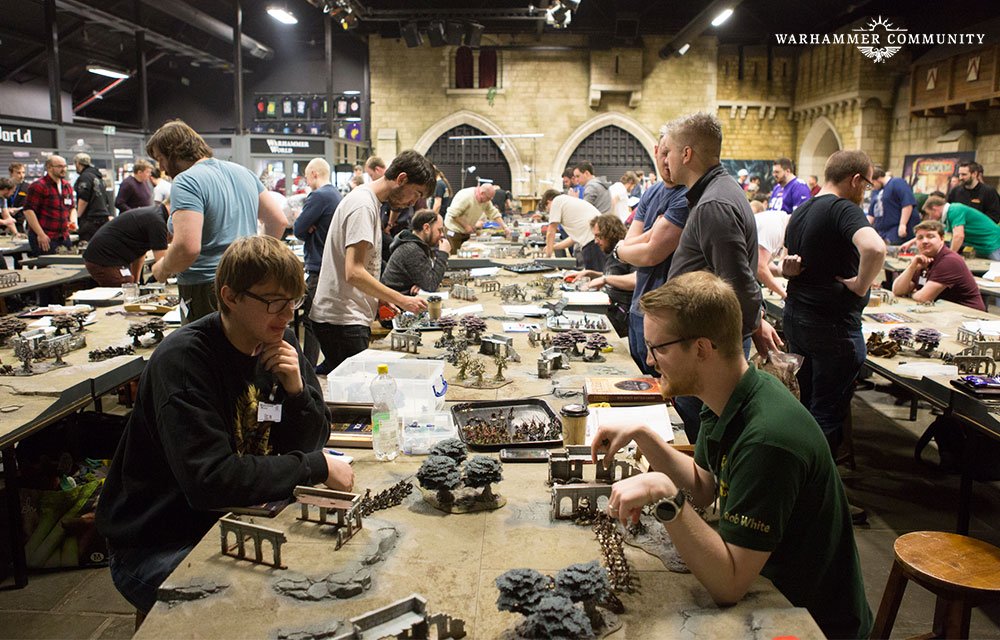What to do when a player ruins the fun for a whole group…
A few weeks back, when broadly discussing this wonderful hobby of ours, I mentioned that different people want different things out of the games we play. That came up in a conversation I recently had with a friend who recounted a handful of difficult experiences he had running games for a local group where player’s definitions of “a good time” were very clearly unaligned. We’ve all had versions of that story, and you can’t exist in this hobby long without it rearing its ugly head.
As a result I want to take just a few minutes to talk about social contracts…
No, this isn’t a tangible, or formal thing, rather it is a reference to the fact that whether your game of choice is Warhammer 40k, Dungeons and Dragons, or Star Wars: Armada, you rely on another human being, or several, to have a good time. The thing about humans, though, is that we’re a wildly diverse group in how we approach or behave in different situations. Thus, the need for social contracts.
A social contract requires communication above all else, and can be conducted as casually as can be, but can also alleviate conflict well before it arises. Start with the easy stuff… “What game do we want to play?” More often than not a group has gathered because that question comes pre-answered.

From there, the INTENT of the game needs to be defined. Broadly speaking this might be asking, “Is this a narrative focused game?” or “Is this tournament prep?” and other such questions. This is the ideal time, judgement free, and before any “feels bad” moments have occurred to clarify further items. Are the experience levels of players in the group wildly different? Is someone’s reason for being there in drastic misalignment with others? At this point no one has done anything wrong, or ruffled feathers, so it is a perfect time to catch potential future problems.
Now, we take this time to really clearly checklist some of these points, because moving forward, someone breaking social contract points can be reminded that they had a chance to opt in or out, and agreed to participate. If the clearly stated goal for a group is to play a fluffy campaign they as a group should have as clearly as possible defined what that means to them (no obvious meta tournament lists, or in D&D terms the now standard PH+1 where players can only pick one outside supplement so as to not power-game). If Tommy X shows up to his first campaign game with netlisted Custodes, well we know where the conversation goes next.
Few actually want to cause conflict, but we’re all tasked with resolving them when they appear. In most cases a player who is just breaking social contract will agree to modify the behavior, if it is being applied consistently across the group. There are high odds that they didn’t know what they were doing, or misunderstood the definitions of whatever limitations the group imposed.

That said, we all know there are outliers. There is inevitably “that f’n guy/gal”. Often it is someone who spends so much money that if your venue for gaming is a store, they are deemed indispensable and are allowed far too much leeway. The thing is, a single poisonous gamer like this can in time actually kill off a whole local community. In these instances of a “win at all costs” game, or a rude or offensive gamer, there is one thing I find can help.
Rather than escalate to the banning of a player, etc… I often find it worthwhile to remind said individual how small our community is. Regardless of how popular you think a given corner of our hobby is, most towns will maybe support one or two stores or clubs, and a further fraction of these individuals play game X. No one, even the saltiest of players wants to see their investment voided, and letting these individuals know that their reputation is capital in true social games, can often cause the light-bulb to go off. If a player becomes known for having the sole trait of ruining other’s fun, they can, and quickly should, find their ability to get opponents dries up.
This level of conflict resolution should do fine for all but the worst of cases, but is again required to keep our hobby thriving.
And as a parting note, really do know that the vast majority of interactions never need to go past the first two steps. Acting with sportsmanship and general decency works in 99% of cases, and leads to better games and fun going forward. Giving the benefit of the doubt also goes a long way. I, and most here, probably recall a time they misread a room and brought too hardcore a list to a casual Friday game… it happens. Communicating in advance, and being as clear as possible to all parties involved really is the best way to knee-cap conflict.
And remember, Frontline Gaming sells gaming products at a discount, every day in their webcart!



